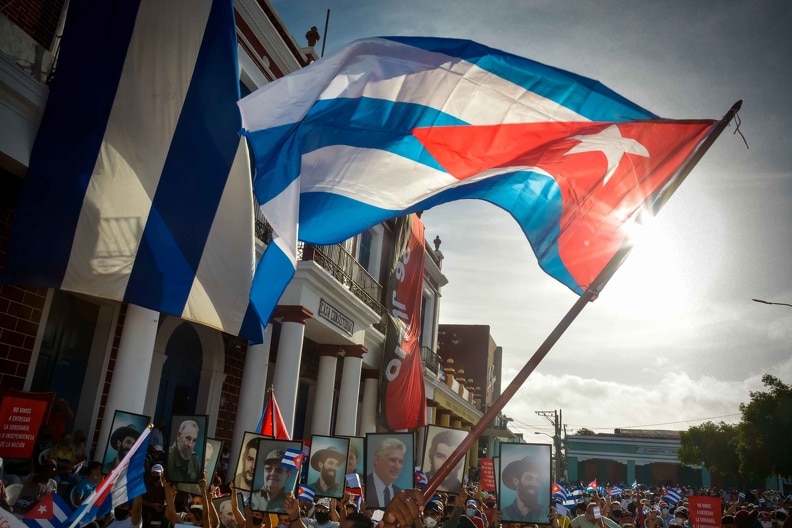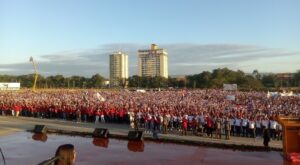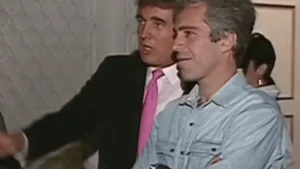
Published 01/14/2025 20:13 | Edited 01/14/2025 20:31
In the last act of his administration, the President of the United States, Joe Biden, notified Donald Trump’s transition team that he intends to remove Cuba from the list of “State Sponsors of Terrorism”. The decision comes less than a week before the Republican’s inauguration, scheduled for the 20th.
The news was confirmed by a senior Biden administration official this Tuesday (13). “During this transition period, teams from the respective administrations, the Biden administration and the incoming Trump administration, have been communicating regularly on a range of issues. And this issue is among the issues they have communicated about,” he said.
The First Secretary of the Central Committee of the Communist Party of Cuba and President of the Republic of Cuba, Miguel Díaz-Canel Bermúdez, stated on social media that this “is a decision in the right direction, although late and with limited scope”, since “ the blockade and most of the extreme measures that have been put in place since 2017 to suffocate the Cuban economy and cause shortages remain in force.”
“We will continue to confront and denounce the economic warfare and actions of interference, disinformation and discredit financed with US federal funds. At the same time, we will not give up on developing a civilized relationship that respects our sovereignty with the United States”, he concluded.
Embargo impacts and list ranking
Cuba was included in the list of state sponsors of terrorism in 2021, during Donald Trump’s term. In addition to Cuba, countries such as Iran, North Korea and Syria are part of the relationship. The classification imposes severe sanctions, including restrictions on U.S. foreign assistance, bans on defense exports and sales, controls on exports of dual-use items, and financial restrictions.
The economic impact on Cuba is significant. The Cuban government estimates an annual loss of US$5 billion due to the economic and trade embargo maintained by the US since the 1960s, reinforced by laws such as the Helms-Burton Act of 1996 and the Cuban Democracy Act of 1992.
Goodwill gestures
According to the State Department, the decision to remove Cuba from the list was based on the lack of evidence to support the accusation of sponsoring international terrorism. “An assessment has been completed, and we have no information to support the designation of Cuba as a state sponsor of terrorism,” the senior official said.
The gesture also aims to create conditions for the release of prisoners in Cuba, including “human rights defenders” and participants in the July 2021 protests. According to the source, the release should occur “in a relatively short period of time”, with some prisoners being released before Trump’s inauguration. “We think the number of people released will be significant,” he said.
Washington also engaged with various actors, including the Catholic Church and governments of other countries, to foster an environment favorable to negotiation. The Government of Cuba thanked everyone for their contribution and sensitivity. The senior official highlighted that the decision reflects a “gesture of goodwill” to facilitate the release of people “unjustly detained” in Cuba.
Possibility of reversal
Biden’s decision could be reversed by Donald Trump once he assumes the presidency. The Cuban Foreign Ministry highlights the possibility that “the Government of that country may reverse the measures adopted today in the future, as has already happened on other occasions, and as a sign of the lack of legitimacy, ethics, consistency and reason in its conduct against Cuba”.
Asked about coordination between the Democratic and Republican administrations, the senior official stated that “there is regular communication on a variety of topics, and this is one of the issues addressed.”
Since the beginning of his government in 2021, Biden promised to review US policy towards Cuba, but postponed the initiative after the anti-government demonstrations in July of that year, which left one dead, dozens injured and hundreds arrested on the island. Trump, in turn, tightened sanctions against the country during his first term, reinforcing the economic and trade embargo.
With the imminent change in command of the White House, the future of relations between Washington and Havana remains uncertain.
From AFP
Source: vermelho.org.br

